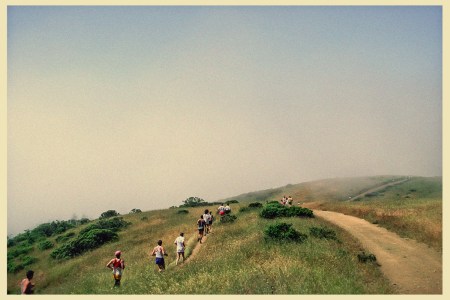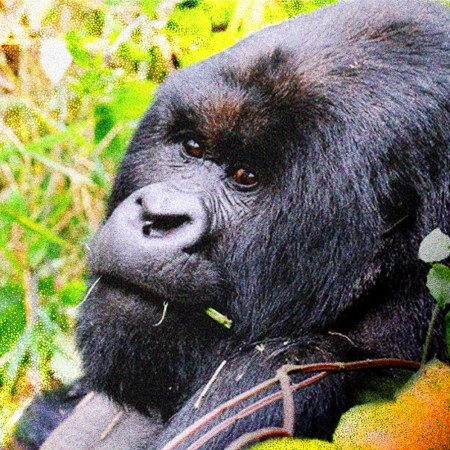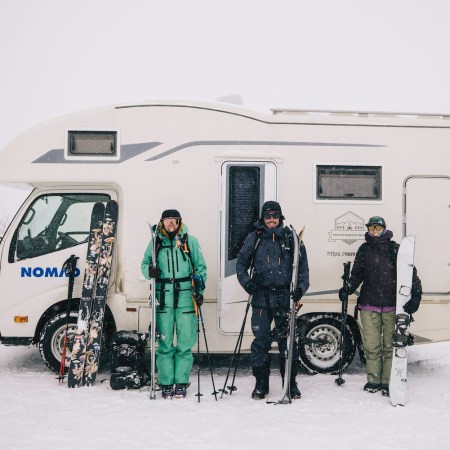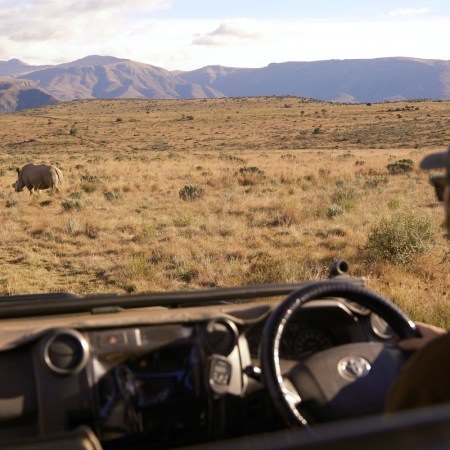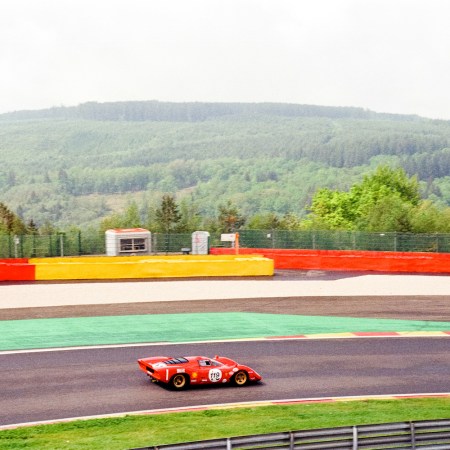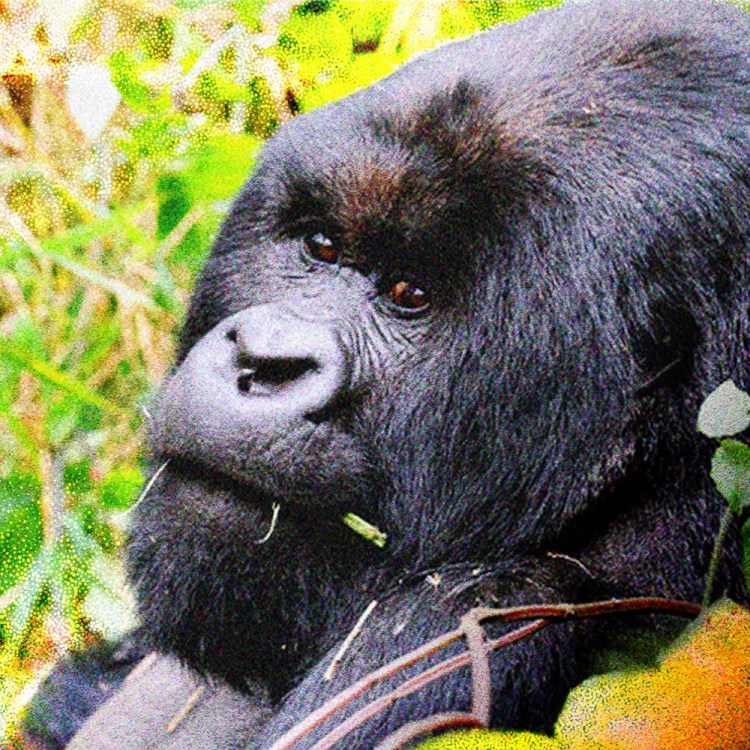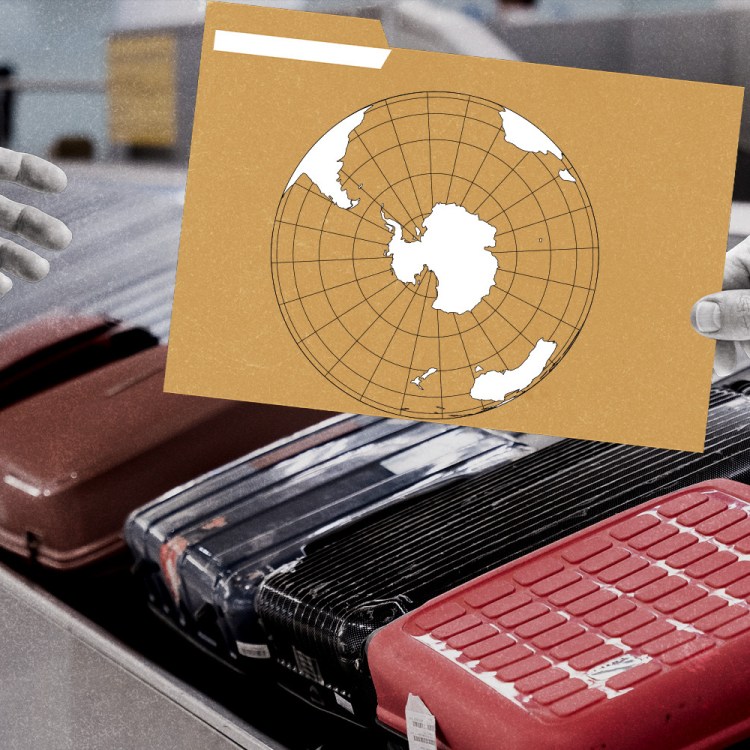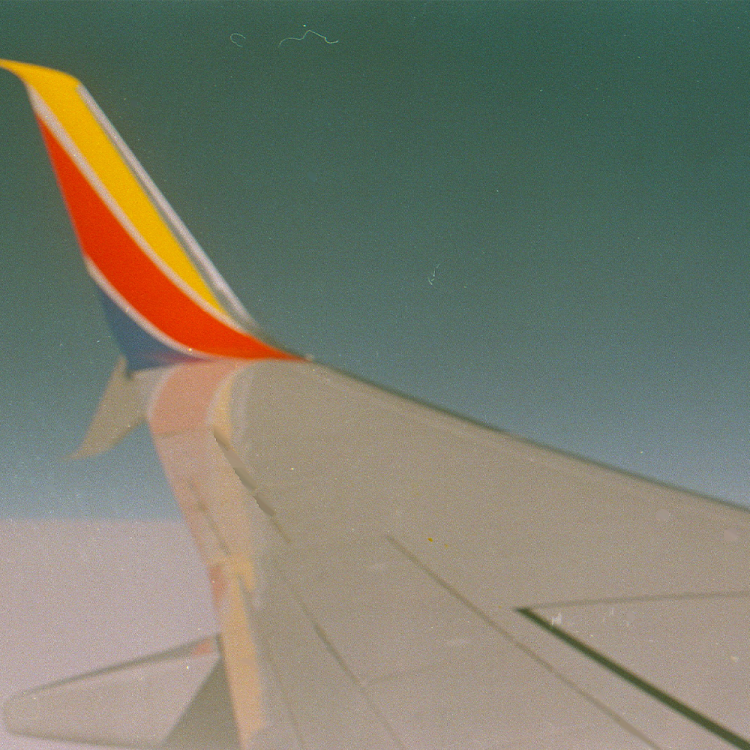For those who haven’t had the pleasure of tuning in to Hidden Frontiers on the Discovery Channel, meet Reza Pakravan — host and explorer. While that term, “hidden frontiers,” may seem a bit outmoded in the mid-2020s, in Pakravan’s case, it means exploring the known world in unthinkable ways.
A fellow of the Royal Geographical Society, Pakravan became the first person in modern history to travel the full length of Africa from west to east through the Sahel region. Later in his career, he set a Guinness World Record for crossing the Sahara Desert — by bicycle.
Perhaps most improbably, he once cycled the 11,000-mile length of the planet, along the longitudinal axis, in a record time of 102 days. The north-to-south journey was documented in a TV series and book called Kapp to Cape, a reference to Nordkapp in the Arctic Circle and Cape Town in South Africa, his start and end points.
We spoke to Pakravan to discuss the latest season of Hidden Frontiers, the pleasures of exploring the world’s remote corners and his newest discovery: the other side of Arabia.
InsideHook: Given that your show is called Hidden Frontiers and you’ve been tasked to find new places to explore, what parts of the world have fascinated you recently?
Reza Pakravan: These days, with so much of the world being explored, it’s hard to find new and unique experiences. And because so many people are now able to go to these far off places, and live there, everywhere is becoming more alike every day. Back when I was solo traveling, finding new places was a passion, but now with my series Hidden Frontiers, it’s my entire purpose.
The first areas that people think of when they are asked to think of remote places are countries like Alaska or Papua New Guinea. But quickly you start to realize over the past few decades these places have been covered and explored to death. The tourism bureaus and adventurers have been everywhere possible out there.
The world opened up a little more to us when more parts of the Middle East opened up to visitors. Of course, through the show I was lucky enough to be one of the first people to really get through these other borders. There are places that I had to work very hard to get access to through clearances and permits, that are now open to the general public. There is more to see in the Middle East beyond Dubai, which is no doubt an incredible place but a little overexposed these days.
The Globetrotting Guidebook: Our Most Memorable Runs Across the Planet
A powerhouse panel of pro runners, legendary coaches and race directors share the routes they’ll never forgetWhat was your familiarity with the Middle East before you went last year?
I had never been to that part of the world before. So there was a huge learning curve. It’s important to respect their culture as well, and that becomes even more nuanced when you are bringing cameras with you. That may apply even if you are filming with your own personal camera phone. Even though they might have beliefs different than your own, you have to be sensitive to the fact you are coming to their home and land.
Having an open mind is easier said than done. On the cultural side, I was anticipating locals and people in the country looking over in judgement or staring over my shoulders at all times. There were female members of our crew, so there were unique processes we had to go through to make sure they were able to travel while staying in accordance with local laws. But we were actually left to our own devices for the most part. Even when I was there filming a show, there weren’t any limitations to what we could do.
What parts of the Middle East have made the biggest impressions on you?
For starters, Saudi Arabia just recently opened its doors and there are so many areas there that are absolutely stunning. My jaw dropped several times when I saw these lands. In the northwest of Saudi Arabia, you see this beautiful landscape that used to serve as the path for human migration out of Africa. So our ancestors actually passed through this land and left their mark. You can see petroglyphs that go back four thousand years ago, which encapsulates so many eras. Walking around these areas, it’s like walking around an open-air museum.
I believe many people think of barren deserts when they think of Saudi Arabia; but when I was there in January, there was snow on the mountains. We were sitting in our tents shivering while snow was falling around us with temperatures at minus five degrees. Those are the surprises you can expect when going to new places, which is half of the fun. On the other side, there are also lava fields that you can find out there.
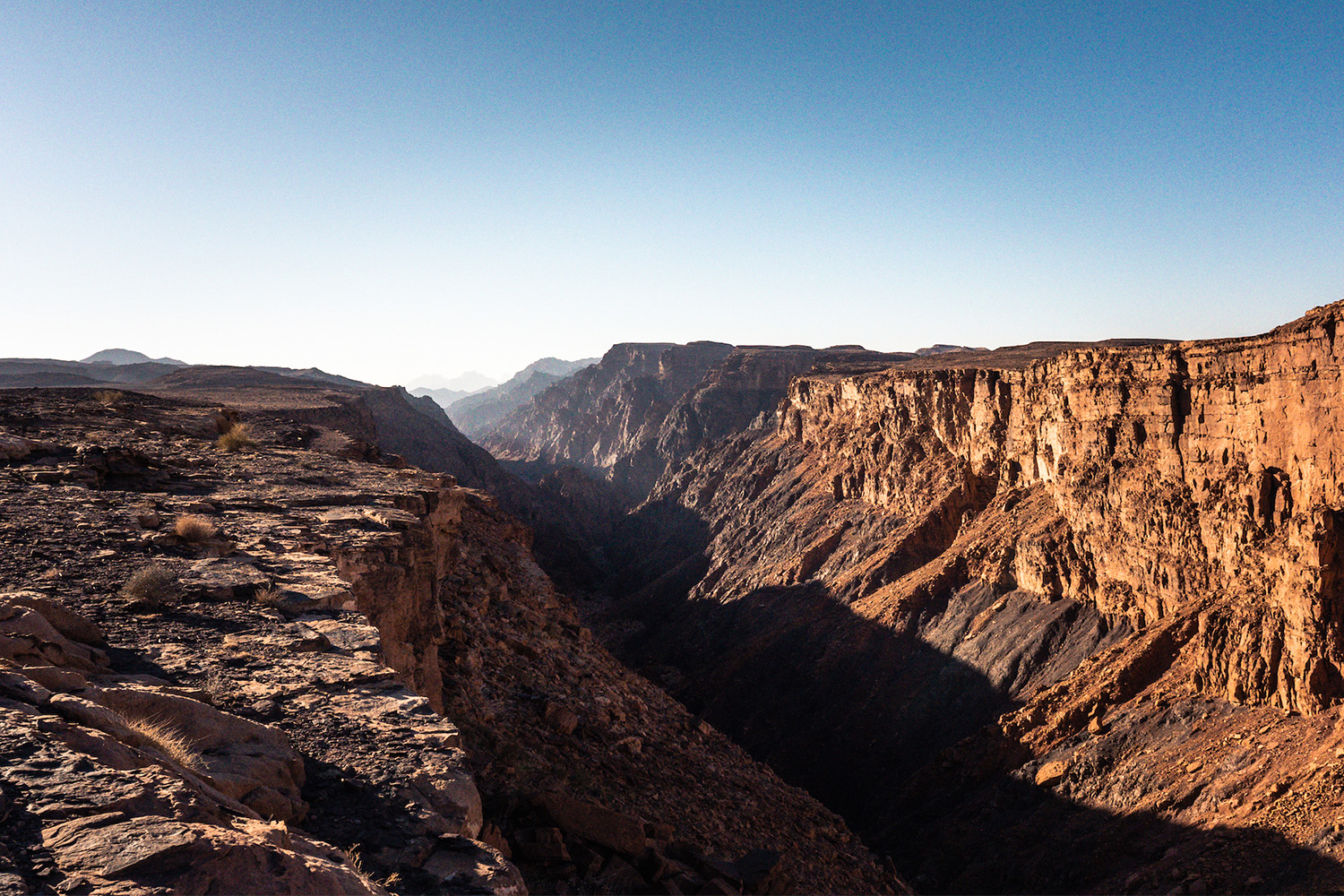
Is there a part of the Middle East that you think is A) a great experience and B) offers the easiest acclimation for visitors from the United States?
I think Oman is a really good place to start for people hoping to see a different side of the Middle East. They are very culturally advanced. They care about privacy and personal space, which isn’t always the case with countries in the Middle East. This place is also very culturally rich. You have the desert, you have the mountains, you have the canyons, and then these tiny little villages that pop up in these pristine places.
The canyons are breathtaking in Oman. For example: the Jebel Shams, which is called the “Grand Canyon of Arabia” for a reason. The canyon itself is awe-inspiring, but then you also have these ancient tombs as well, which exemplifies the history attached to these lands. I personally would love to go back to Oman.
Anthony Bourdain did an amazing special out there as well, which is a great video to watch for people looking to make the trip — along with our series Hidden Frontiers, of course. The food is very meat-heavy, so vegetarians can expect a little struggle. But if you do enjoy meat, their marinated dishes are next level and really hit when paired with a great wine.
Is there a part of the Middle East that’s maybe more difficult to get to, but worth a trip if you can manage it?
I was very surprised when I was able to travel to Iraqi Kurdistan. Getting there wasn’t challenging at all; we first flew to Turkey and then flew from there to Erbil. But I think a lot of people, myself included, would anticipate this to be a dangerous, war-torn place. And then we were walking down the street in Erbil and the environment there was just incredibly pleasant. The area has five-star hotels, amazing bars, even a few incredible steakhouses.
Our production had a fixer and local guide to help with getting us around safely. While it might not be completely necessary, getting a local guide if you are unsure of your surroundings can be a great move for any traveler. There is also some very special wilderness outside of the city areas as well. There are these beautiful mountains that tower [over the landscape], and the area is one of the most mountainous regions in the world.
One of the areas that really stuck with me was the Zagros Mountains. There are these endangered Persian leopards that have found sanctuary in this area where there are thousands and thousands of land mines from the Iran-Iraq War. During that time when Saddam Hussein was in control, he put land mines in all of these beautiful places. The positive byproduct of this horrible action is that poachers aren’t able go into their territory. The leopards are thriving in those minefields, so in a very real way they are protected.
Do you have any essential gear that you try to pack for every one of these journeys?
I always make sure that I am traveling with a dry bag, and my favorite right now is from Ortlieb. This item has a lot of purposes. First, I use it to compartmentalize my clothes in the bag, and when there’s a rain or river where I get wet, it’s great to keep everything else dry. Lastly, if you are outdoors and having issues getting clean water, you can use it to collect rain water. Getting a great pair of boots is also important. I like the Altberg brand, which is a U.K. bootmaker [whose boots] are used by the military. I also think that having a great knife is also key, which means you are probably going to have to check a bag.
Being someone who has seen so much of the world, what is your advice for people who would also like to see more of it?
I am always surprised when people say that they want to explore the world, but haven’t done so. Getting out into the world is a lot easier than you think, especially when you are solo traveling. Just pack a bag, find a place on the map and go out there. Now that I am traveling with a whole crew, coordinating the logistics has become a lot more of a production.
The decision to go anywhere can be easy, but once you’ve decided where you are going, preparation is paramount. Preparation is especially important when you are going to another country with different culture and different customs. That is the case for the Middle East. I was probably more prepared for this experience than others, because even though I was raised in London, my parents were from the Middle East.
For some civilizations, the concept of time is completely different than that of ours in the Western world. I remember I was staying with an indigenous tribe in the middle of the Amazon and we wanted to capture one of their coming-of-age ceremonies. This is when young men have to wear these gloves filled with fire ants to prove their level of endurance. Usually the young men will become completely paralyzed with the pain. This ceremony happens when it happens, and it’s silly to go there and ask them, “What time are you doing that?” The ceremony happens when it happens.
That’s just one of the beautiful benefits to experiencing someone else’s existence, because it forces you to slow down as well. So whether you are going into the Amazon or into the Middle East, don’t try to force anything. Let the experience come to you.
This article appeared in an InsideHook newsletter. Sign up for free to get more on travel, wellness, style, drinking, and culture.

